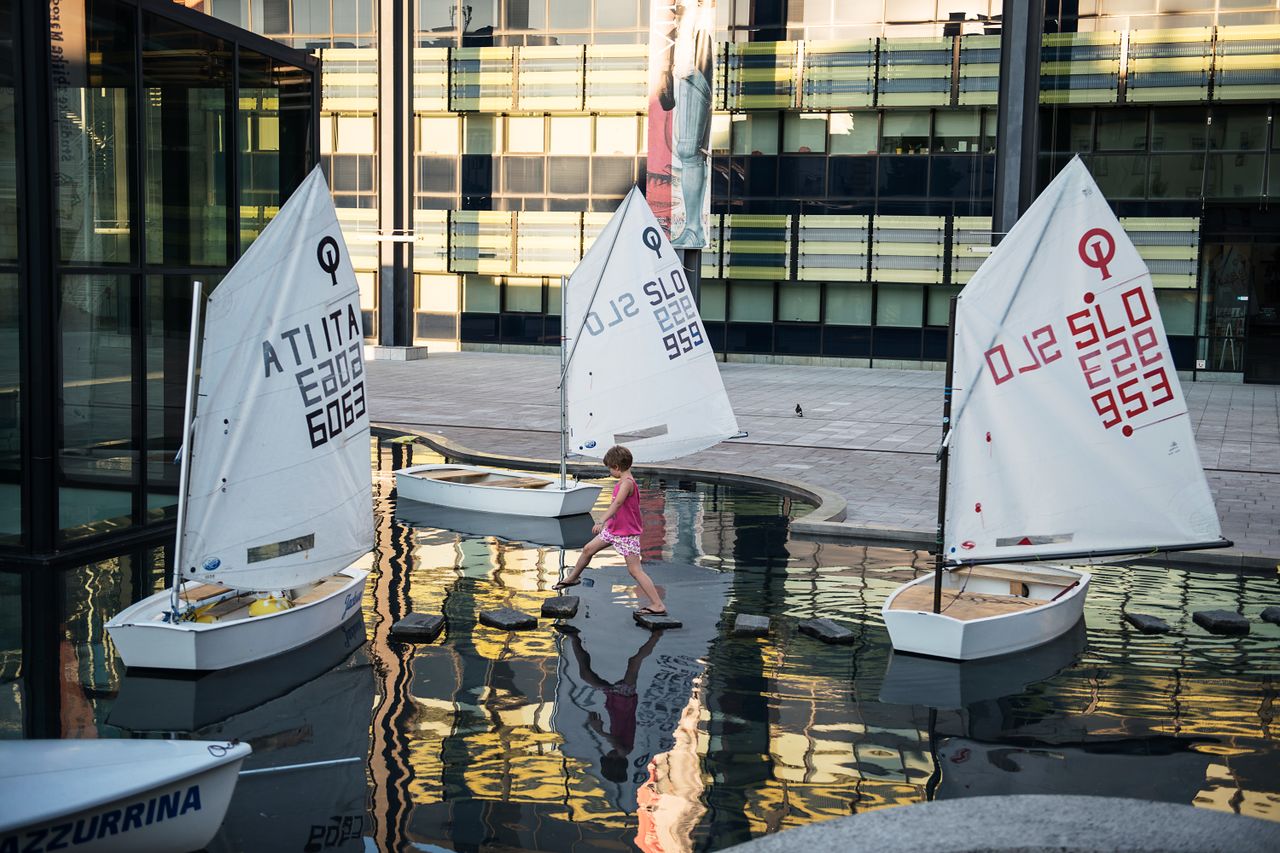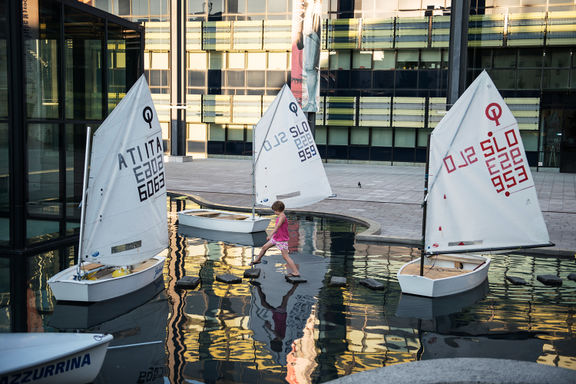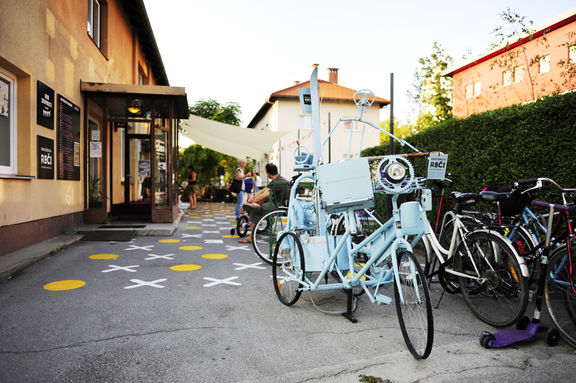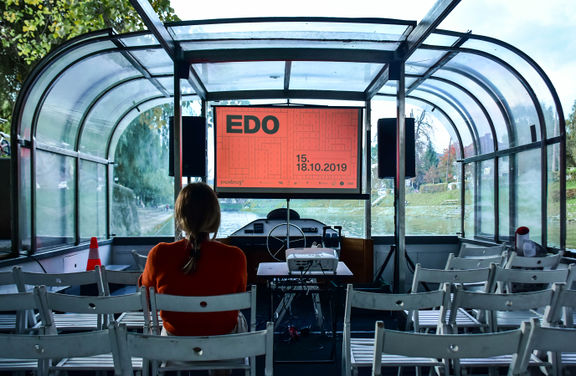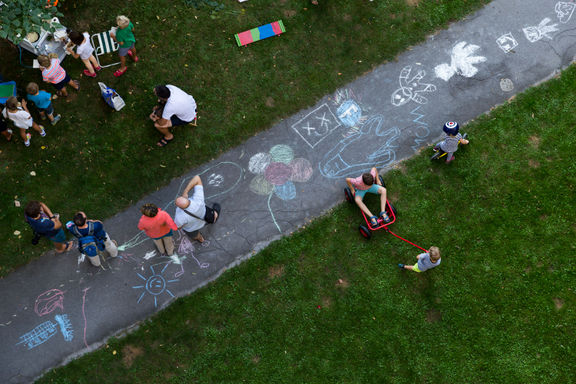-
11 Dec 2014
BelgiumBrusselsIle-de-France EuropeA presentation by Alenka Korenjak (ProstoRož), a project partner, at the final event of ECLECTIS (European Citizens' Laboratory for Empowerment: Cities Shared), EU funded project led by Dedale Research and Production Association -
to
15 Mar 2012
31 Mar 2012
BelgiumBrusselsReclaiming Public Space with participating Urban Planning Institute of the Republic of Slovenia and the ProstoRož, At the Human Cities Festival -
to
11 Jun 2011
18 Jun 2011
AustriaViennawünsch dir was – make a wish project by ProstoRož at the Wiener Festwochen
- Common Places: new imaginaries of European peripheries, 2020
Project summary - A-PLACE: Linking places through networked artistic practices, 2019
Project summary - European Artizen Initiative, 2014
Project summary - ECLECTIS: European Citizens' Laboratory for Empowerment: CiTIes Shared, 2013
Project summary Show more
About
Founded in 2004 by architects Alenka Korenjak, Ana Grk and Maša Cvetko, ProstoRož is a non-profit cultural organisation that produces creative and well-considered interventions in the public environment, focusing on degraded urban spaces and proposing new solutions for their revitalisation. The name of the association is a combination of the Slovenian words prostor (space) and roža (flower).
Activities and awards
ProstoRož interventions are not merely artistic installations in public areas but also in-depth searches for new city planning options of space usage. In their projects, experts from various fields of spatial planning, architecture, landscape architecture, city planning, nature conservation, cultural heritage and tourism are involved.
Among their interventions, there are the new coverings of fountains in the wintertime and exhibitions in the abandoned windows of shops in the city centre, printed with the poetry of contemporary Slovene poets. ProstRož also participated in the 2008 project Slovenska Street when the traffic was closed on the main street in Ljubljana during the weekend and inhabited with various cultural programmes of several design studios including CodeEp and Asobi.
The work of the association includes architecture as well. In collaboration with the architectural studio Kombinat Architects they renovated the Plečnik and Tivoli underpasses in Ljubljana.
ProstoRož Association has received several awards and mentions, of the most important is ranking among finalists at the international competition European Prize for Urban Public Space in 2006 for the project ProstoRož – Parks. The female architects ware also granted the title "young prospective designers in the field of interior design" at the Month of Design in 2008.
Their work in spatial planning has been officially recognised by the Republic of Slovenia as being a matter of public interest since 2016.
In 2017, ProstoRož Association was part of the team that received the Golden Pencil Award bestowed by the Chamber of Architecture and Spatial Planning of Slovenia (ZAPS) for the outstanding realisation in Slovenia of RCERO (the Ljubljana Regional Waste Management Centre). ProstoRož contributed to the centre's learning path.
Work
Selected projects
- ProstoRož 04_atriums: Overlooked gaps between city houses (2004)
The team singled out the characteristics and particularities of the 11 chosen spaces. The character of each space was emphasised by a unique installation. The project provided a possible solution to the problem of abandoned and neglected spaces in the city centre. After the event was over, the spaces we intervened in remained nicer and friendlier than before, which encouraged the city inhabitants and visitors to adopt them as their own.
- How do you spell supercity? Awareness-raising (2010)
The goal was to raise inhabitants' awareness of the positive qualities of their city. The team collected data on the city and sorted it into various thematic categories; this was the starting point for 16 inscriptions, 16 emphases. With the help of words, they connected diverse and unique natural, spatial, historical, cultural and housing qualities of the city of Velenje into an integral lively project. The inscriptions were adapted to their urban setting and designed in the spirit of the city. This action resulted in raised awareness of the positive qualities of the city. All households received a booklet which further developed the concepts emphasised in the inscriptions.
- Winter Interventions: Fountain covers and custom-designed lights (2008, 2009, 2010)
Relatively long winters, badly lit spaces and unattractive, provisional solutions for urban equipment were contributing to a negative experience for residents in Ljubljana. Each installation was designed as a separate project. The character and programme of the space were taken into consideration during the design process. Some of them were made as a response to requests by local inhabitants, some by invitation from the municipality. The objectives behind all of them were: cheap, intriguing and easy to mount and take down. As a result, Trubarjeva ulica became well-lit and well recognised because of new, distinct lighting. Public squares gained a new seasonal identity and were freed from illegal advertising on old fountain covers. Tabor Park became a friendly and inviting place to pass at any time of the day/night.
- Map of Wishes: Temporary installation at festivals in three different cities (Vienna, Ljubljana, Brighton ) (2011, 2014)
Residents are rarely presented with a chance to view their neighbourhood from the urban planner's perspective and actively engage in the process of planning the future of a space. Action: A large carpet – a 150 m2 map of wishes – represents a playful way to connect the residents with their neighbourhood. The inhabitants and visitors of the neighbourhood are invited to state their wishes or make suggestions for the neighbourhood. The wishes were written down and pinned, together with a balloon, to the spot on the map where they should be implemented. The carpet turned the public spaces it was built on into meeting points where people could engage in conversation and where children could play with their friends. Playfully, they thought about their neighbourhood and of the things they wanted to be surrounded by. In Ljubljana, the mayor promised to fulfil the most popular wish and Ljubljana got two new playgrounds.
- The Library of Things: Community space as a tool for revitalising neighbourhoods (2015-ongoing)
Through their integrated urban renewal project in the neighbourhood of Savsko naselje, Ljubljana, the team initiated the building of bonds between neighbourhood residents. The Library of Things was inspired by Leila Library in Berlin. It is a special, non-profit library where members can borrow various useful items: tools, sports equipment, toys, home appliances, etc. It enables individuals to use items that they might only need occasionally or can't afford to purchase on their own. By opening the library, they also provided the use of its space free of charge for various events. The space hosts various lectures, board game nights, swaps, yoga, workshops and similar events. As a result, anyone can borrow things from the library, either by paying a small fee, volunteering, or bringing an item from the library's wish list. The library strengthens the social life inside the neighbourhood and builds stronger social networks among the locals.
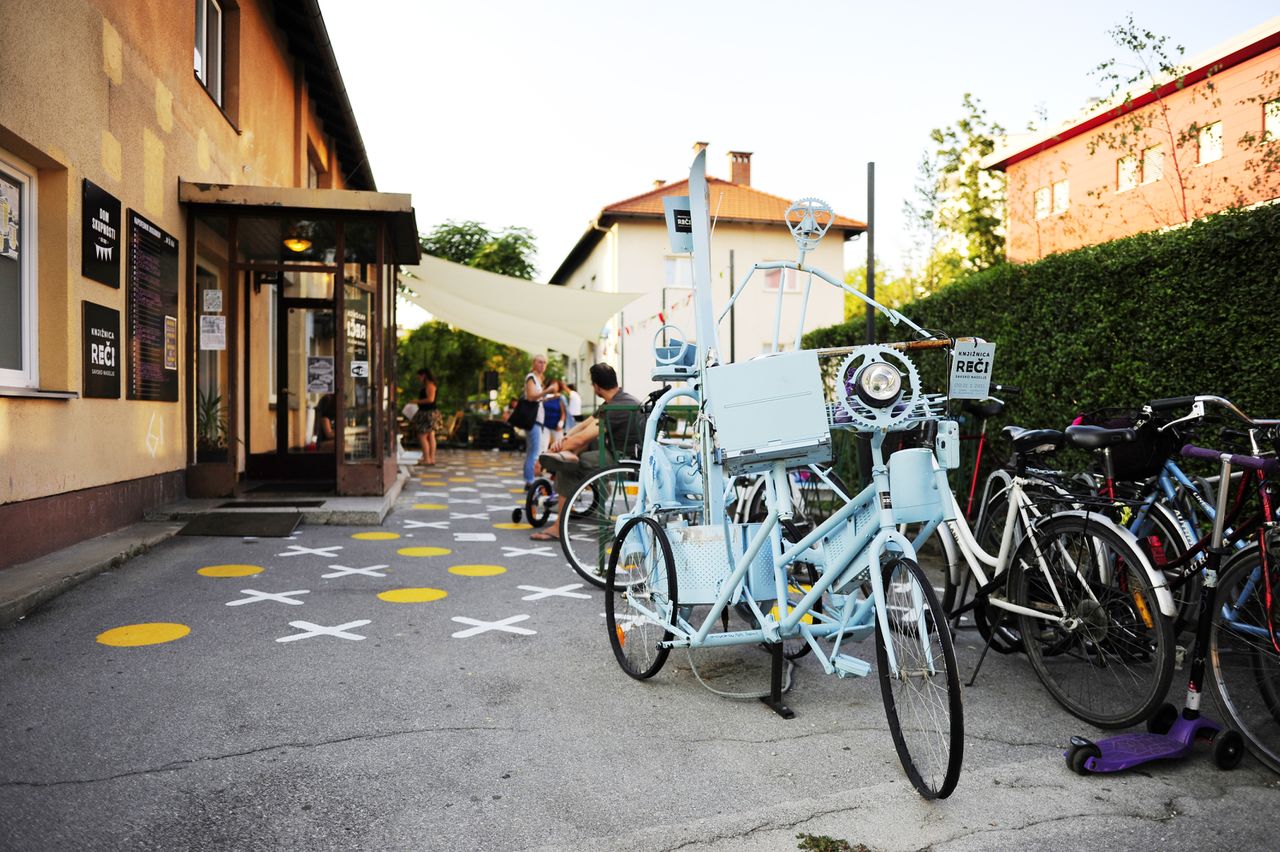
- Idrija: Sustainable urban regeneration (2017)
Idrija is a town with approximately 8,000 inhabitants. Its complex topography and numerous sites of cultural heritage represent a unique challenge for urban regeneration. The project aimed to regenerate a part of Idrija's public space in order to assure a long-term vision for improving the quality of life in this town. The project included a regeneration pilot project of a selected area, encouraging the collaboration among municipality departments and a training for local officials. Together with residents, the team worked in the selected area of Idrija to determine how they use their public space, and, drawing from their response and spatial analysis, designed a series of urban furniture. By the end of two test months, they organised a meeting with residents to evaluate the urban furniture. The interventions helped establish a dialogue between residents and the municipality about activities that could further improve the quality of life in the area.
Other activities
The group's first exhibition project ProstoRož was held in 2004 with a transformation of neglected atriums into attractive public spaces. One year later, the parks were rearranged in order to open new perspectives on the existing grounds. The ProstoRož collective focused on the Ljubljanica River in 2007, offering selected areas to public use, while playgrounds were the main theme in 2008 with furniture installed in order to provide children with creative territories for play. In 2009, a selected street was inhabited in cooperation with the Mladi levi Festival.
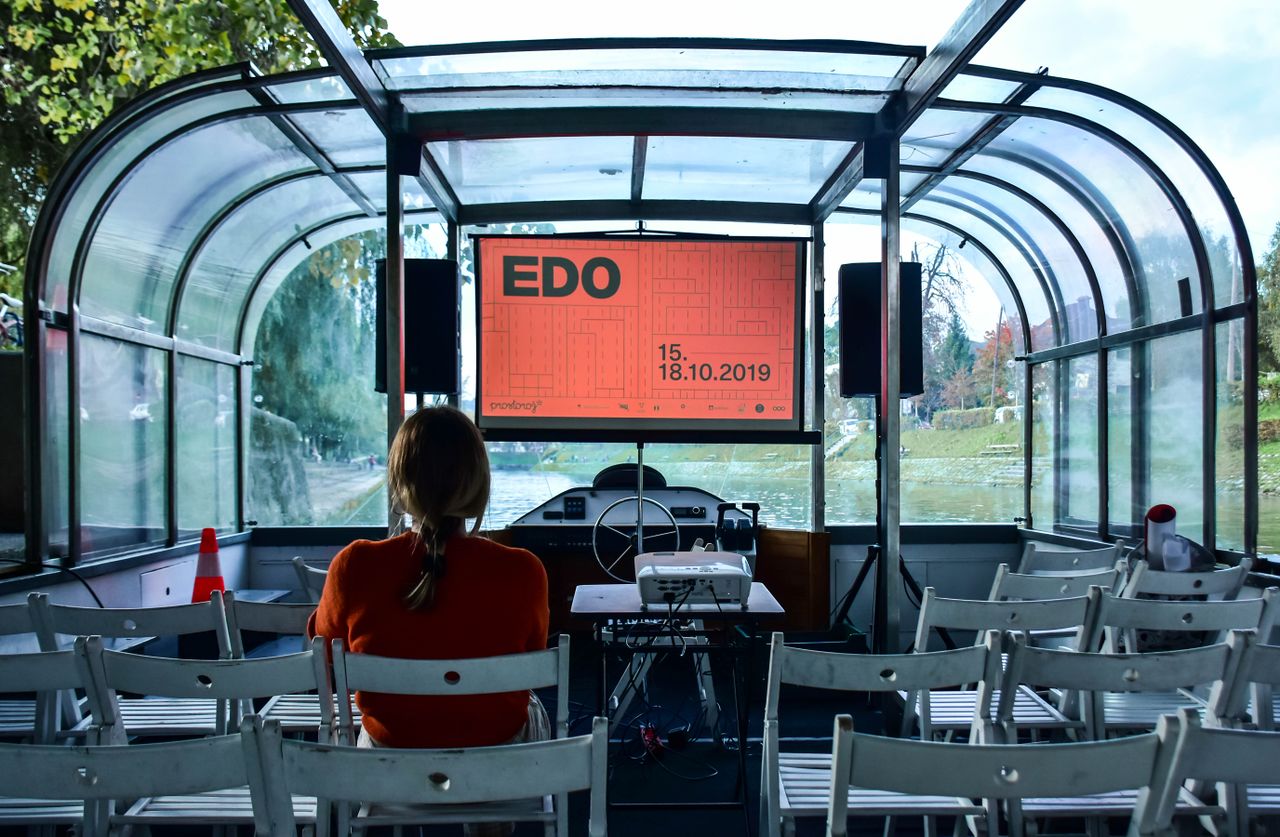 EDO film festival, ProstoRož, 2019.
EDO film festival, ProstoRož, 2019.
In 2019, the team organised the second edition of the EDO Film Festival, co-ordinated Experimental Space Terrain, supported 10 initiators of local actions in Ljubljana in the framework of Outside, warned about the importance of unbuilt areas, tested the methods of exploring cities with young people from Palermo and Ljubljana and helped set up a local renovation office in Nova Gorica, Slovenia. They also lectured, visited the Faculty of Architecture, University of Ljubljana as guest critics, and learned about good urban planning practices.
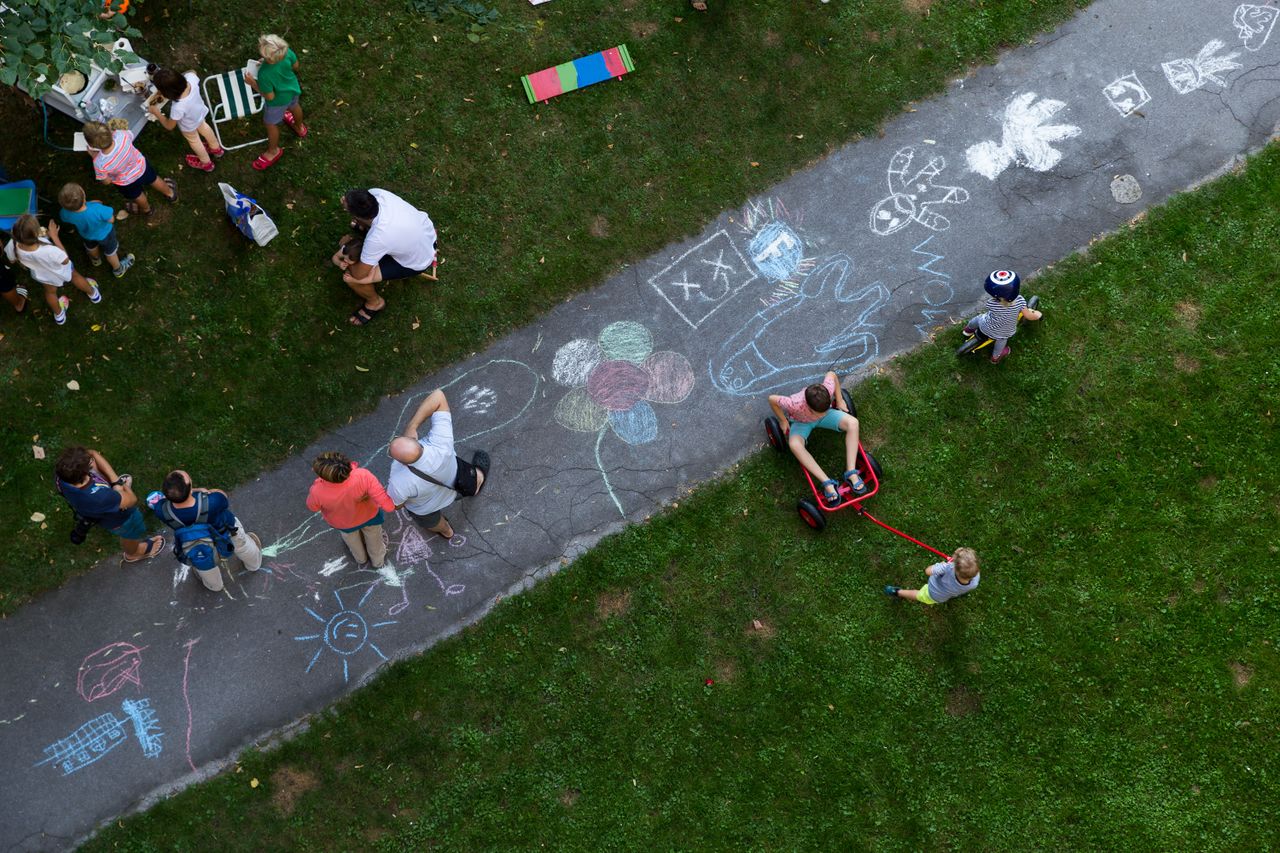 Project Outside, ProstoRož, 2019.
Project Outside, ProstoRož, 2019.
External links
- ProstoRož website
- ECLECTIS project information
- ProstoRož lecture at BOKU (Faculty of Landscape Architecture) in Vienna, Austria
- Audio extract of ProstoRož presentation at the Kunst Apotheke Salon in 2009
- The European Prize for Urban Public Space website
- Maša Cvetko at the Human Cities Symposium 2010 in Belgium
- Notice about the award for RCERO


